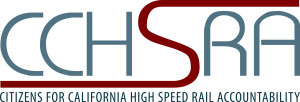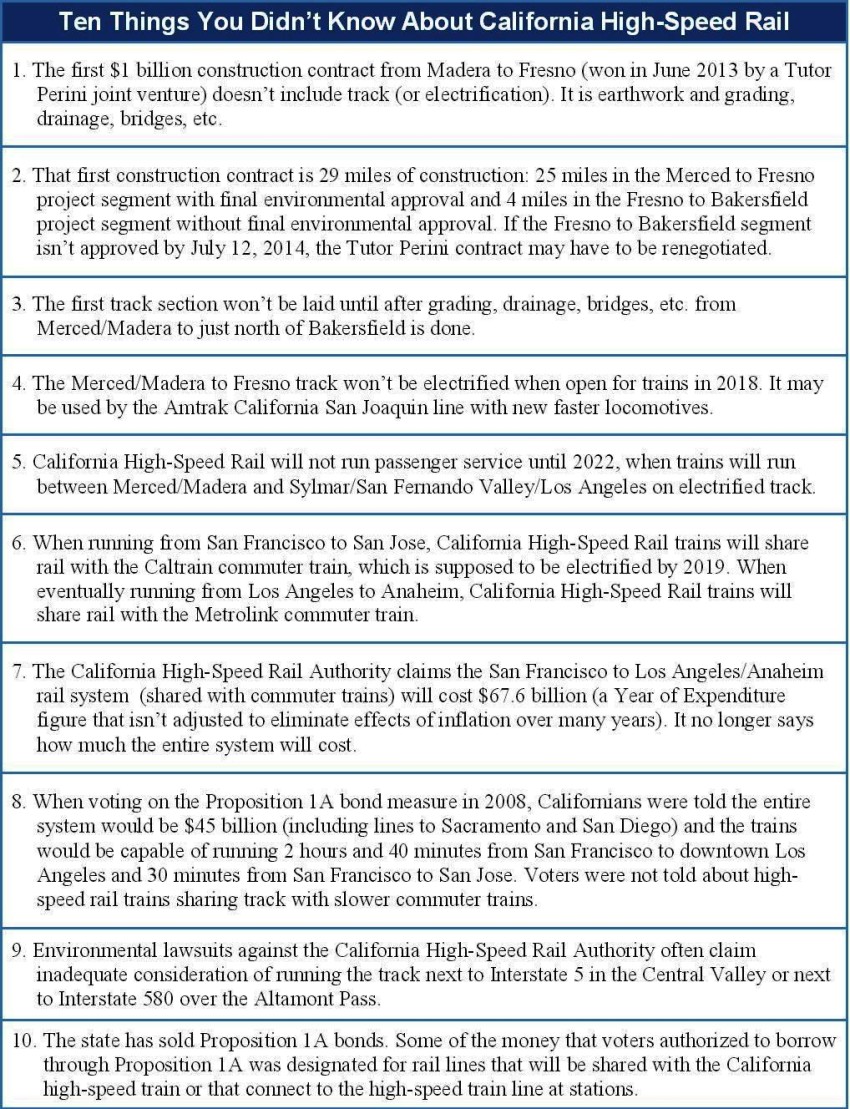Court Allows California High-Speed Rail to Violate Terms in Voter-Approved Bond Measure: Press Release from Legal Team
On July 31, 2014, the California 3rd District Court of Appeal overturned two lower court decisions and sided with the California High-Speed Rail Authority and Governor Jerry Brown. It allowed the California High-Speed Rail Authority to borrow $9 billion for high-speed rail as authorized by Proposition 1A, approved by voters in November 2008. Here is the decision:
Here is a press release from the legal team that argued against the California High-Speed Rail Authority. They argued that the Authority had violated some of the provisions of Proposition 1A and therefore could not borrow money by selling bonds as authorized by voters in 2008 under Proposition 1A.
COURT OF APPEAL ALLOWS HIGH-SPEED RAIL TO VIOLATE BOND MEASURE
The Third District Court of Appeal late yesterday overturned two trial rulings that had hamstrung Californiaʼs still-embattled High-Speed Rail project. The Court ruled that “The Legislature appropriated the bond proceeds based on the preliminary funding plan, however deficient, and there is no present duty to redo the plan.”
Plaintiff’s lead counsel, Michael Brady, was disappointed with the ruling. He said “The voters approved Proposition 1A only because it included stringent requirements to protect the state from financial risk. The Court ruled that although the project did not meet the requirements, taxpayers have no remedy now. They can only sue after many more tens of millions of dollars are spent on design and analysis.”
Stuart Flashman, co-counsel added, “The court has essentially allowed the Authority to ignore promises it, and the legislature, made to Californiaʼs voters. It bodes ill for votersʼ willingness to trust such promises in the future. Supreme Court review appears warranted.”
In November 2013, Judge Michael Kenny ruled that the High-Speed Rail Authorityʼs Funding Plan failed to properly certify, as the bond measure required, that all needed environmental clearances had been obtained and sufficient funding was available to complete the Merced to San Fernando Valley segment of the project.
The Tos v. California High-Speed Rail Authority case was brought by a farmer, a rural homeowner and Kings County. It asked the Court to block the Authority from using bond funds because the project failed to meet the ballot measureʼs requirements.
In addition, the appeals court reversed Kennyʼs ruling that blocked the issuance of bonds because of another failure to satisfy bond measure requirements. In California High-Speed Rail Authority et al. v. All Persons Interested, the appellate court held that no evidence was needed to show that it was “necessary or desirable” to issue the bonds – effectively erasing that provision from the ballot measure.
Click here to access documents from the two cases. Three other claims in the Tos case are still pending in the trial court.
###


